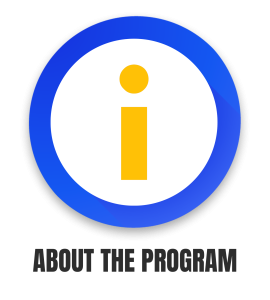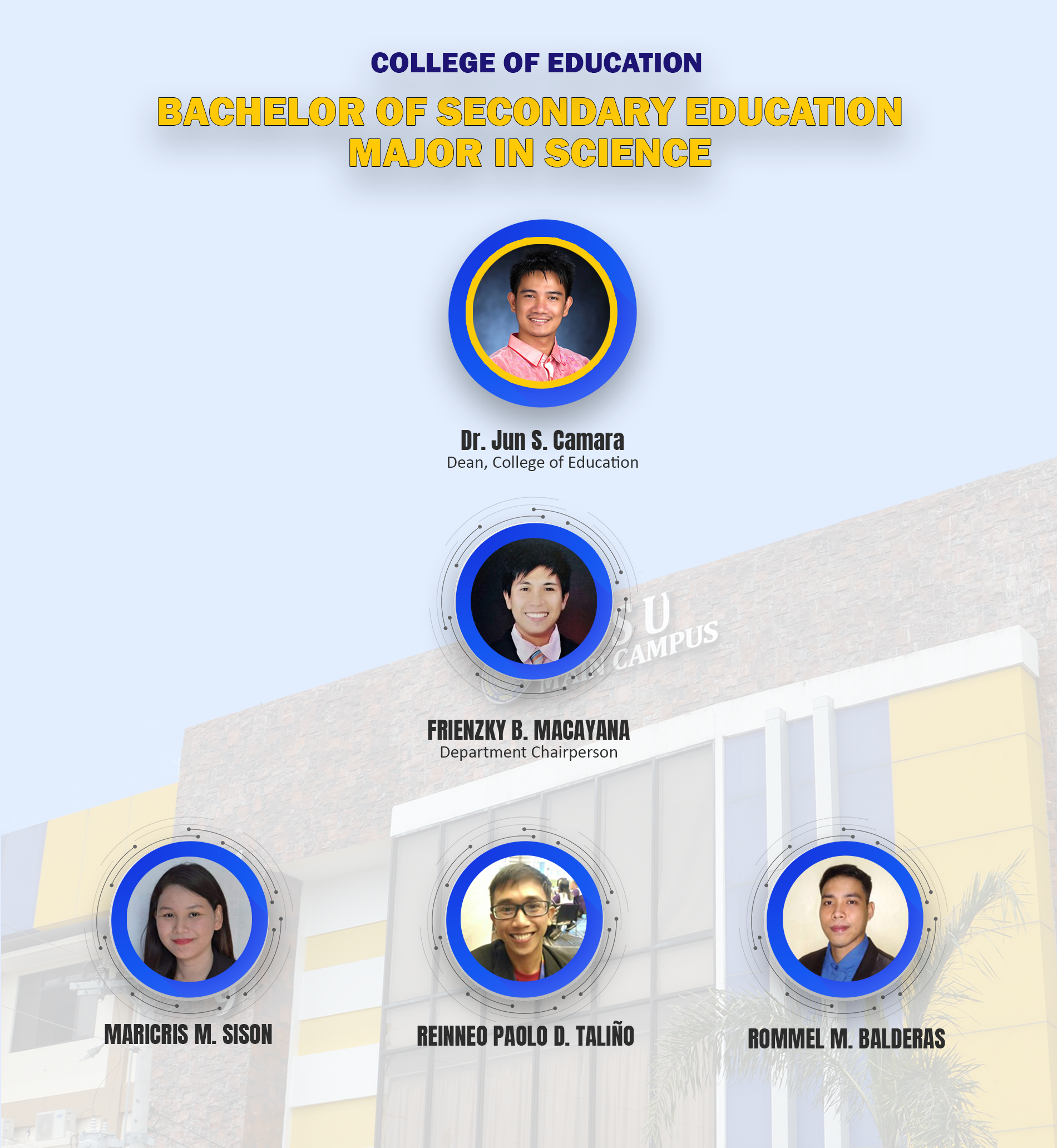Major in Science


Welcome to Science Education Department!
On behalf of the faculty, staff, and students of Pangasinan State University, welcome to the BSE Science Education program of PSU Lingayen Campus!
It is an honor and pleasure to have you here with us and appreciate your time and effort to visit our program.
We hope that you will experience a pleasant virtual tour to learn more about the BSE Science program and I warmly invite you to explore and discover all we have to offer.
The Bachelor in Secondary Education major in Science, former BSE Physical Science, has produced quality, well-rounded students that can compete with the skills in 21st Century Education. Our graduates have been appointed in major schools as elementary science teachers, high school teachers, and college instructors. As we are in a continuous cycle of learning, the department is sought to enhance and upgrade the education to the best quality it can offer. The BSE program undergone various accreditations and the faculty members were honed their skills through proper seminars and trainings. We believe that professional science educators should be thoroughly educated in their content discipline and bring modern theories of learning and education.
The BSE Science department is dedicated to bringing the best quality of education to its students. Our faculty are committed in delivering excellent service through the four mandated functions guided by the principles and core values of PSU: instruction, research, extension, and production. The BSE Science and the whole PSU Family transform students into a never-ending learners with the ability to succeed in any challenges and inspire them to achieve their goals.

The Bachelor of Secondary Education major in Science is a four-year program that provides a classroom, research, and course curriculum development opportunities to students to become an educators and researchers. The program prepares students to lead future generations in science and technology education. It focuses on Physics, Chemistry, Biology, and Earth Science.
EMPLOYMENT OPPORTUNITIES
- Elementary School Teacher
- High School Teacher
- Senior High School Teacher
- College Instructor
- Researcher
- Research Assistant
The graduates of BSE have the ability to:
- Articulate the rootedness of education in philosophical, socio-cultural, historical, psychological, and political contexts
- Demonstrate mastery of subject matter/discipline
- Facilitate learning using a wide range of teaching methodologies and delivery modes appropriate to specific learners and their environments
- Develop innovative curricula, instructional plans, teaching approaches, and resources for diverse learners
- Apply skills in the development and utilization of ICT to promote quality, relevant, and sustainable educational practices
- Demonstrate a variety of thinking skills in planning, monitoring, assessing, and reporting learning process and outcomes
- Practice professional and ethical teaching standards sensitive to the local, national, and global realities
- Pursue lifelong learning for personal and professional growth through varied experiential and field-based opportunities
- Display basic and comprehensive understanding of knowledge, principles of the subject matter in the sciences
- Apply the scientific principles in solving current problems
- Uses scientific inquiry in understanding and explaining natural phenomena
- Design and utilizes appropriate instructional materials in science
- Employ effective teaching techniques for diverse types of learners in varied learning conditions
- Design and utilizes a variety of appropriate assessment techniques to monitor and evaluate learning
- Provide regular feedback to students
- Utilize appropriate pedagogy and use of technology for the different science content areas
- Demonstrate skills in various methods of teaching-learning in the sciences to include conducting science investigations, making models and prototype, and doing science research
- Create and utilize learning experiences in the classrooms to develop learner’s skills in discovery learning, problem learning and critical thinking.
Organizational Chart

